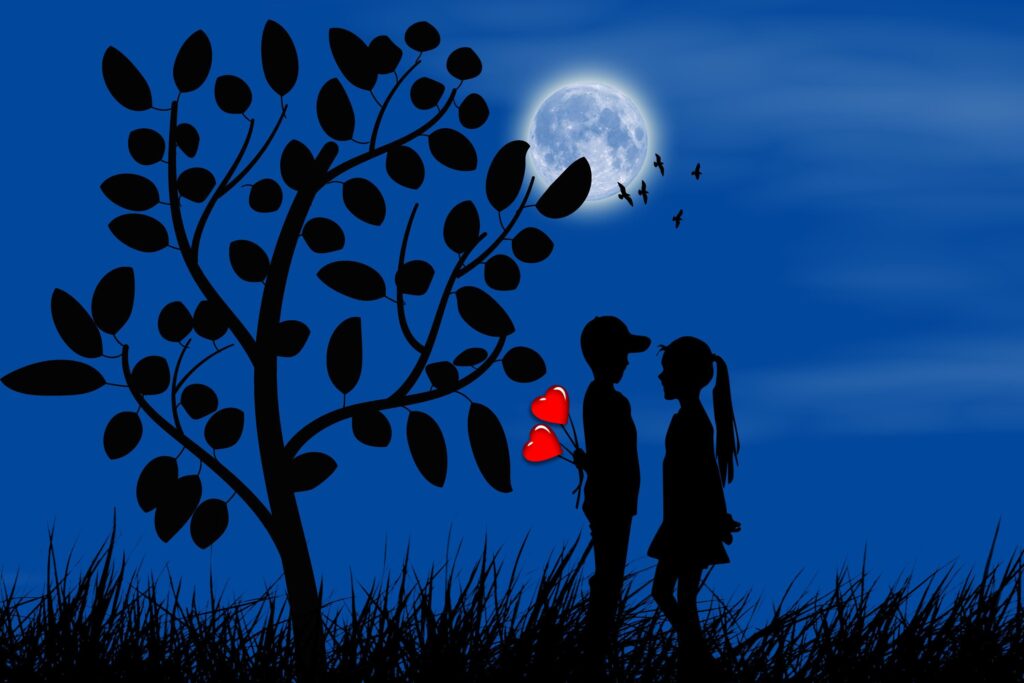
Diminutive names in Russian are appropriate only when communicating with a person whom you already know well enough. They denote a strong attachment, so you should not abuse these words left and right. Today we will tell you about the frequently used affectionate addresses in the Russian language and the features of their formation.
Unlike English, where many words of the “affectuate language” suggest that you want to eat your beloved (for example, sweetheart, sugar, honey), in Russian, loved ones are often compared to small animals (diminutive forms of animal names).
|
Affectionate adress |
Pronunciation |
Translation |
|
Зайчик, зайка |
[zajchik], [zajka] |
Bunny |
|
Рыбка |
[rýpka] |
Little fish |
|
Котик, котёнок |
[kótik], [katyónak] |
Kitten |
|
Мышка, мышонок |
[mýshka], [myshónak] |
Mousy |
|
Ласточка |
[lastachka] |
Swallow |
|
Воробушек (mostly used with kids) |
[varóbushik] |
Little sparrow |
|
Цыплёнок |
[tsyplyónak] |
Chicken |
|
Львёнок |
[l’vyónak] |
Lionet |
|
Лапочка |
[lapachka] |
Lassie |
.
Other common words for expressing tenderness convey that someone is very dear to you, emphasize that this person is wise, beautiful or small. All words are used to express love and affection.
.
|
Affectionate adress |
Pronunciation |
Translation |
|
Солнышко |
[sólnyshka] |
Sunshine |
|
Умница (feminine word, but can be used to adress men) |
[úmnitsa] |
Good girl / boy, clever person |
|
Дорогая (f. g.), дорогой (m. g.) |
[daragaja], [daragój] |
Dear |
|
Родная (f. g.), родной (m. g.) |
[radnaja], [radnój] |
Darling |
|
Любимая (f. g.), любимый (m. g.) |
[l’ubímaja], [l’ubímyj] |
Beloved |
|
Ненаглядная (f. g.), ненаглядный (m. g.) |
[nenaglyadnaja], [nenaglyadnyj] |
Wondrously beautiful |
|
Пупсик |
[púpsik] |
Cutie |
|
Малыш (masculine word, but can be used to adress women), малышка (f. g.) |
[malýsh], [malýshka] |
Baby |
|
Крошка (used to adress women) |
[króshka] |
Baby |
|
Куколка (used to adress women) |
[kúkolka] |
Doll |
|
Золотце |
[zólotse] |
Gold / precious |
|
Бусинка |
[búsinka] |
Small bead / sweetie |
|
Ягодка |
[yagatka] |
Small berry / sweetie |
As you may have noticed, most of the affectionate addresses mentioned above are formed from ordinary words by adding a diminutive suffix:
.
We offer a list of the most widely used suffixes for the formation of diminutive words.
.
|
Suffix |
Word example |
Diminutive variant |
English variant |
|
-ек (mostly refering to m. g.) |
Цветок |
Цветочек |
Flower → little flower |
|
-ик (often with m. g.) |
Кот |
Котик |
Cat → kitten |
|
-енька / -инька |
Дочь
Заяц |
Доченька
Заинька |
Daughter → darling daughter Hare → little hare |
|
-ечк |
Анна Ольга Полина Книга |
Анечка Олечка Полечка Книжечка |
Female names and their diminutives
Book → booklet |
|
-чк |
Мама Папа Вова Полина |
Мамочка Папочка Вовочка Полиночка |
Mother → mommy Father → daddy Male and female names and their diminutives |
|
-ул |
Бабушка
Мама Дима |
Бабуля
Мамуля Димуля |
Grandmother → granny Mother → mommy Male name and its diminutive |
By clicking "Send" you agree to us processing your information

As you can see, the Russian language has endless possibilities for creating affectionate words thanks to numerous suffixes. It may feel somehow unusual at first, but once you understand the language better, you can use them without hesitation.
Another feature of the Russian language is that when you address a friend or someone to whom you address as “ты“, a diminutive may be used instead of the full form of their name:
Саша, открой, пожалуйста, окно. — Sasha, please open the window.
In this sentence, «Саша» is a diminutive of «Александр». In addition, many names may have several diminutive variants, which are formed using various suffixes. So, Alexander can be called Саша, Сашенька, Саня, Санечка and many other ways.
Using diminutives with well-known people, your speech will sound more natural, and communication will be warmer. Sometimes diminutive names have nothing to do with the original form, so we suggest you get acquainted with the more frequent Russian names:
And remember that some of the diminutives may have a negative connotation and will not necessarily be pleasant or funny for your loved ones. So, for example, «обезьянка» (little monkey), «поросёночек» (piglet) or «пончик» (donut) are words that your loved one probably won’t appreciate hearing!
We hope you found this article useful. We are ready to help you learn Russian online with a native speaker. Classes are individually adapted to your wishes. Submit an application for a free trial lesson and we will find the most suitable Russian language course for you.

By clicking "Send", you consent to us processing of your information.





By clicking "Send" you agree to us processing your information
By clicking "Send" you agree to us processing your information